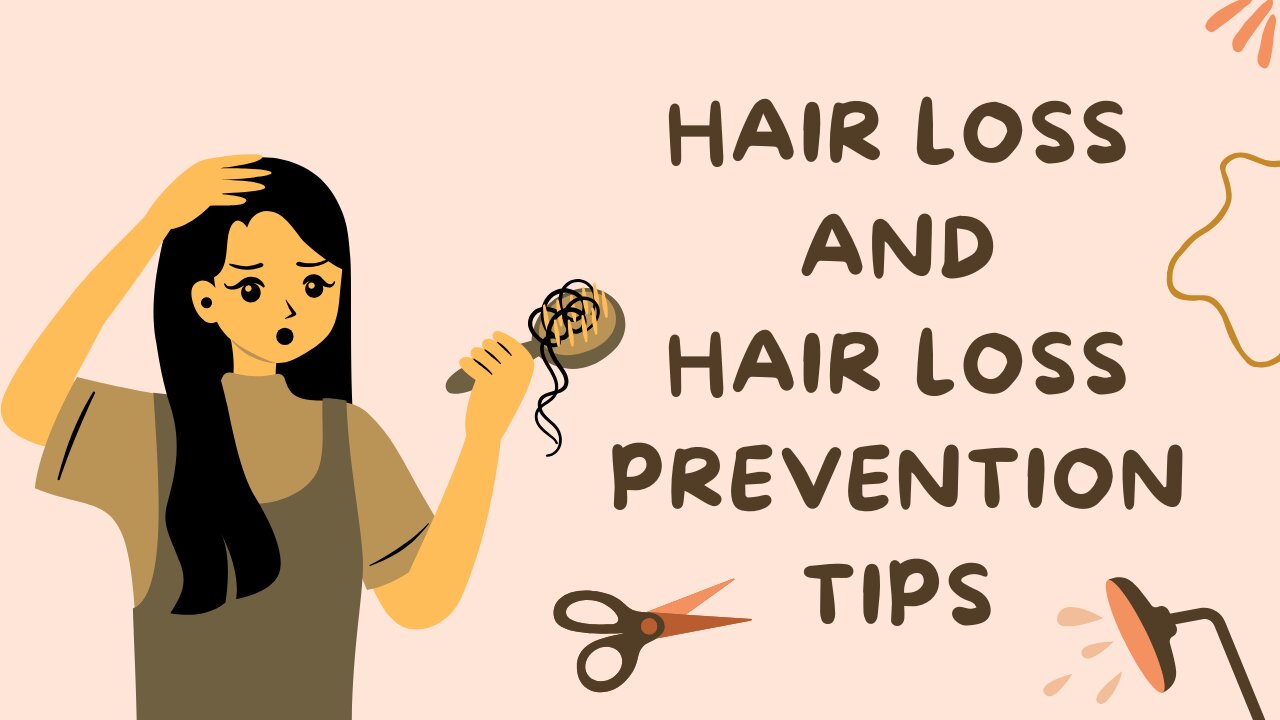Premium Only Content

Hair Loss and Hair Loss Prevention Tips
Hair Loss and Hair Loss Prevention Tips
Introduction:
Hair loss, medically termed alopecia, is a prevalent issue affecting many globally. This article delves into its causes, treatment methods, preventive measures, and dispels common myths surrounding hair loss.
Key Causes of Hair Loss:
Genetic Hair Loss: Known as androgenic alopecia, it's hereditary and affects both genders, causing hair follicles to produce shorter, thinner hair over time.
Stress: Chronic stress can disrupt the hair growth cycle, leading to excessive hair fall.
Aging: As individuals age, hair growth slows, and follicles weaken, often resulting in hair loss, especially in men.
Hormonal Imbalance: Factors like menopause, pregnancy, thyroid issues, and conditions like PCOS can lead to hormonal imbalances causing hair loss.
Malnutrition: Deficiencies in essential nutrients like iron, zinc, and vitamin D can disrupt the hair growth cycle.
Treatment Options:
Medications: Drugs like finasteride and minoxidil are commonly prescribed to counteract hair loss.
Hair Transplantation: A surgical procedure where hair follicles are transplanted from dense areas to balding spots.
Lifestyle Changes: Stress management, a balanced diet, and avoiding damaging hair practices can aid in prevention.
Preventive Measures:
Diet: Consuming a balanced diet rich in essential nutrients promotes hair growth.
Hairstyles: Avoid tight hairstyles that pull on hair and damage follicles.
Heat Protection: Limit the use of heat styling tools or use protective products to prevent hair damage.
Myths Debunked:
Hats: Wearing a hat doesn't cause hair loss unless it's overly tight or rubs aggressively against the scalp.
Brushing: Excessive brushing doesn't stimulate hair growth; instead, it can cause breakage.
Shaving: Shaving doesn't make hair thicker; it only appears denser when it grows back.
Conclusion:
While hair loss can be distressing, understanding its causes and adopting appropriate preventive measures and treatments can help individuals maintain healthy hair. Consulting a healthcare provider is crucial for personalized advice.
FAQs:
Reversibility of Hair Loss: Treatment and lifestyle changes can reverse some types of hair loss.
Wigs: Properly fitted wigs don't cause hair loss but ensure they aren't too tight.
Natural Remedies: Some natural remedies like rosemary oil and onion juice may aid hair growth, but more research is required.
Stress-Induced Hair Loss: Prolonged stress can lead to temporary hair loss known as telogen effluvium.
Hair Loss Gender Prevalence: While both genders experience hair loss, it's more commonly observed in men due to androgenic alopecia.
Disclaimer: This content offers research-based information for awareness. Always consult with a doctor for personalized treatment advice.
-
 54:59
54:59
LFA TV
8 hours agoWhy Do Migrant Criminals Love Obama So Much? | TRUMPET DAILY 1.24.25 7pm
4.02K4 -
 LIVE
LIVE
2 MIKES LIVE
2 hours ago2 MIKES LIVE #171 Open Mike Friday!
432 watching -
 LIVE
LIVE
Quite Frankly
7 hours ago"Fugitives No More, JFK Declass, Stargate vs MAHA" ft Matt & J Gulinello 1/24/25
1,275 watching -
 23:15
23:15
The Based Mother
2 hours agoPRONOUNS ON MY NAMETAG? NOPE! How I responded when these folks tried to shove this down my throat.
3.61K2 -
 1:54:45
1:54:45
Twins Pod
6 hours agoMAGA P***star is HATED By Conservatives AND Leftists... | Twins Pod - Episode 49 - Brandi Love
49.7K46 -
 15:45
15:45
inspirePlay
3 hours ago $0.13 earnedLong Drive Showdown: Martin Borgmeier vs. 3 of the World’s Longest Female Golfers at 8,000+ Yards!
6.48K3 -
 1:01:19
1:01:19
PMG
22 hours ago $1.29 earnedWere the California Fires Intentional & Shocker - the Vax May Cause Long COVID
20.1K2 -
 39:53
39:53
Bare Knuckle Fighting Championship
2 days agoBKFC KNUCKLEMANIA V PHILADELPHIA Weigh-In | LIVE!
18.2K2 -
 3:17:49
3:17:49
Scammer Payback
5 hours agoCalling Scammers Live
45.1K4 -
 1:10:38
1:10:38
Awaken With JP
6 hours agoJFK Files to be Released! Trump’s Boss Move - LIES Ep 75
76.6K54